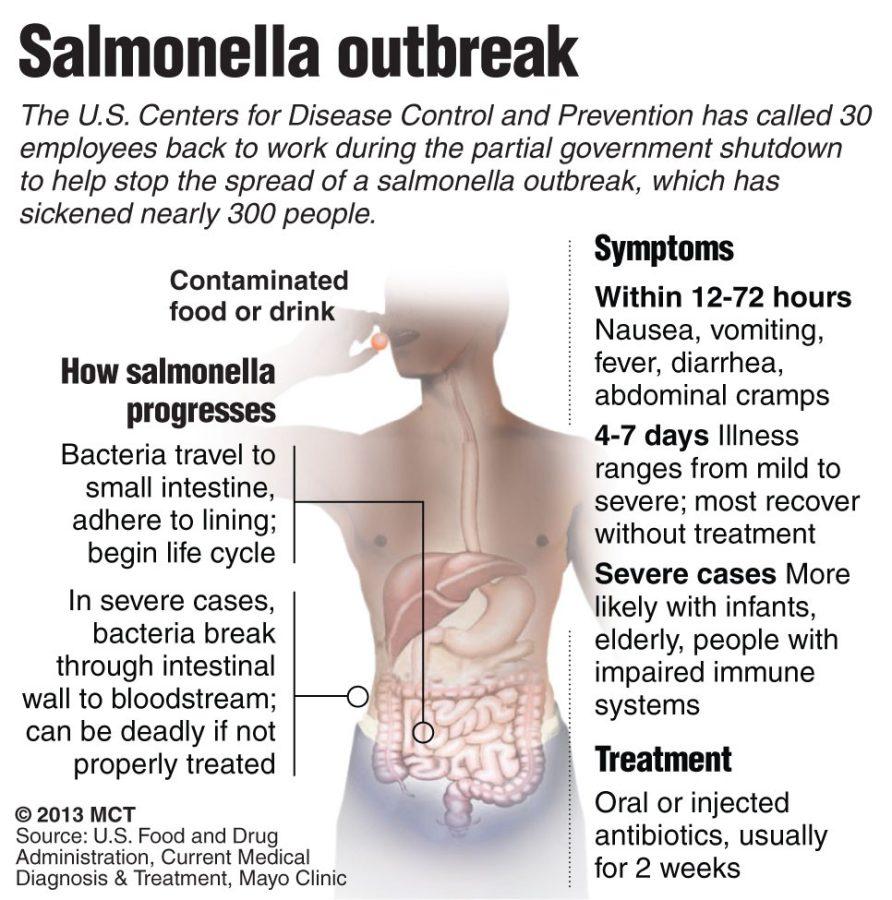WASHINGTON – The U.S. Department of Agriculture gave a California poultry producer until Thursday to correct problems that led to a salmonella outbreak in 18 states, or be forced to shut down three processing plants.
The USDA Food Safety and Inspection Service sent the letter Monday to Foster Farms, based in Livingston, Calif. At least 278 cases of salmonella have been reported, most of them in California. The agency gave the company 72 hours to take corrective action at its California facilities, or it would withdraw its inspectors.
Poultry plants aren’t permitted to operate without USDA inspectors, who are considered essential government employees and have continued to work during the partial government shutdown. Dozens of inspectors work at the Foster Farms plant in Livingston, Calif., one of the largest in the country.
A salmonella outbreak earlier this year was traced to a Foster Farms poultry plant in Washington state. About 134 cases were reported in 13 states.
Tony Corbo, who lobbies for Food & Water Watch, a food-safety advocacy group in Washington, said that should have been a warning sign.
“The fact that you have Foster Farms in two outbreaks should have put everyone on notice that something was up,” said Corbo, who was on a conference call this week with the USDA in which it described the outbreak.
The company hasn’t recalled any of its products, nor has it stopped processing chicken at the plants, Corbo said.
A spokesman for the USDA could not be reached for comment.
When a salmonella outbreak last year was traced to several brands of prewashed, prepackaged spinach, the affected companies voluntarily recalled the spinach.
But chicken products are rarely subject to recalls. The USDA allows 7.5 percent of chicken carcasses to be contaminated with salmonella, Corbo said.
In contrast, the agency will not allow any company to sell products contaminated with E. coli bacteria that can cause food poisoning. Companies selling beef and spinach have been forced to recall products because of E. coli contamination.
“It’s absolute zero tolerance,” Corbo said.
In a statement on its website, Foster Farms said it’s working with the Food Safety Inspection Service and the Centers for Disease Control and Prevention to reduce the incidence of salmonella at its California plants.
“Foster Farms has instituted a number of additional food safety practices, processes and technology throughout company facilities that have already proven effective in controlling salmonella in its Pacific Northwest operations earlier this year,” the company said.
Foster Farms employs about 11,000 people in chicken and turkey plants in California, the Pacific Northwest and the South. About 3,000 work at the plant in Livingston.
Livingston Mayor Pro Tem Gurpal Samra said Foster Farms is the largest employer in the city and Merced County, and supports even more workers at nearby chicken farms and feed operations.
“It’s not just the people in Livingston who work there, but in other communities as well,” he said.
The company’s impact on the local economy has a large ripple effect, said Mark Hendrickson, director of the Merced County Department of Commerce, Aviation and Economic Development.
“Foster Farms and its employees have long represented a very significant part of our local economy, not only with the jobs it has on site, but all the ancillary spending in the community,” he said.









